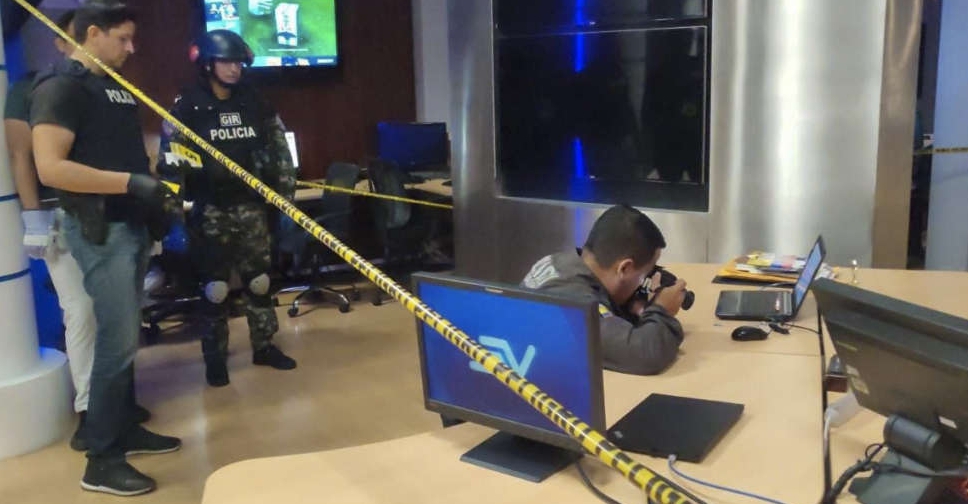
Journalists at various news outlets in Ecuador have been sent envelopes containing electronic devices fitted with explosives, the attorney general's office said on Monday, adding it has opened a terrorism investigation in the incidents.
The envelopes sent to journalists had similar characteristics and the same contents and so would be investigated jointly, the attorney general's office said in a statement, without naming the media organizations affected.
One of the devices partly exploded at Ecuavisa television in Guayaquil, when journalist Lenin Artieda plugged the device into his computer. He suffered minor injuries, according to police.
"It's a military-type explosive, but very small capsules," said Xavier Chango, the national head of forensic science, referring to the explosive sent to Ecuavisa.
The police carried out a controlled detonation of a device sent to the news department of TC Television, also in Guayaquil, prosecutors said earlier on Monday.
Regional freedom of expression advocacy group Fundamedios said a third television station and radio outlet in Quito had also received envelopes with explosives.
The government said it would defend freedom of expression in the country.
"Any attempt to intimidate journalism and freedom of expression is a loathsome action that should be punished with all the rigor of justice," it said in a statement.
President Guillermo Lasso has blamed rising violence, including within the prison system, on competition between drug trafficking gangs for territory and control.
Ecuador is used as a transit point for cocaine being moved to the U.S. and Europe.
Television channel Teleamazonas said one of its journalists had received an anonymous envelope on Thursday and upon opening it had discovered a device, which the police confirmed contained explosives.

 UK inquiry finds 'chilling' cover-up of infected blood scandal
UK inquiry finds 'chilling' cover-up of infected blood scandal
 Iranian President Raisi killed in helicopter accident, state media says
Iranian President Raisi killed in helicopter accident, state media says
 ICC prosecutor seeks arrest warrants for Israeli, Hamas leaders
ICC prosecutor seeks arrest warrants for Israeli, Hamas leaders
 Assange given permission to appeal against US extradition
Assange given permission to appeal against US extradition
 Israel intends to broaden Rafah sweep, Defence Minister tells US
Israel intends to broaden Rafah sweep, Defence Minister tells US




